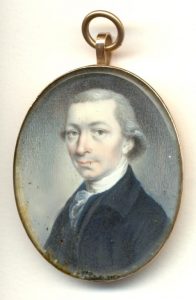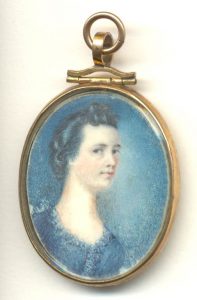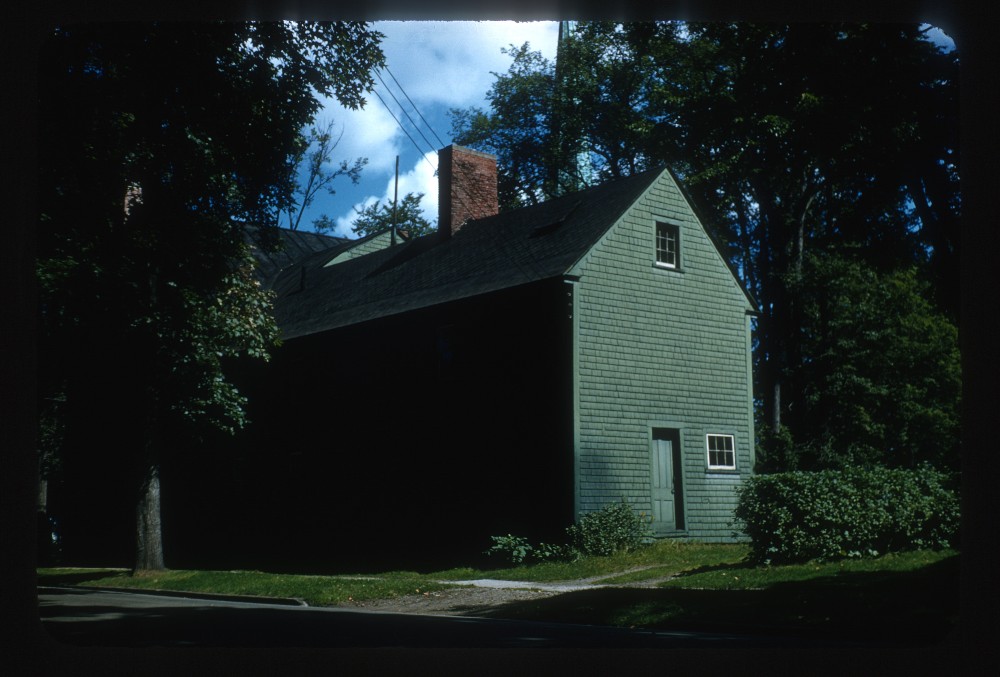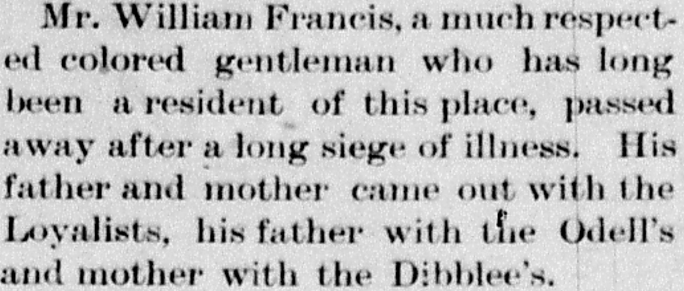Life in Servitude
“[they are] designed to be subservient…slaves by nature.”
– Attributed to Rev. Jonathan Odell, Fredericton, c. 1816.

Jonathan Odell (1737-1818) by unknown artist. Watercolour on ivory, set in a gold locket, 5.5 x 3.5 cm, c. 1770.
By 1824 it was reported by officials that there were no longer any slaves living in New Brunswick. This was actually not the case, since there is evidence that as late as 1845 John Harding (son of George), living in Maugerville, willed his slaves to his sister Elizabeth Miles. Servitude also continued in the form of indentured service. Many within Fredericton’s powerful “family compact” maintained a strict class and racial divide that continued well after the Emancipation Act of 1833.
One such family was that of Jonathan Odell (1737-1818), a prominent member of Fredericton’s social elite who, despite his position in society, harboured a great dislike for people of colour. In fact, in c.1816, he is attributed as stating that “Africans were inherently inferior… ‘designed to be subservient to others…slaves by nature’”.
A clergyman, poet and Loyalist during the American Revolution, Odell was the first Provincial Secretary of the newly formed Province of New Brunswick. In 1791 the British government established the Sierra Leone program for Black settlers in New Brunswick wishing to re-settle in Africa. Sadly, Jonathan Odell was appointed as New Brunswick’s recruiting agent. All Black settlers wishing to emigrate had to apply through him and were required to provide written proof of their freedom.

Ann de Cou Odell (1740-1825) wife of Jonathan Odell, by unknown artist. Watercolour on ivory, set in a gold locket, c. 1780.
Odell was known to be particularly resistant to the Sierra Leone plan. It was said that he did much to stop Black settlers from returning to Africa and spread fearful rumours that settlers would be sold into slavery upon arrival. As Lt. John Clarkson, the person responsible for coordinating the Sierra Leone expedition, reported to Richard Bulkeley in 1791:
“Had a long conversation respecting Mr. O.[Odell] -Secretary to the Governor of New Brunswick whose conduct from all accounts, has been extremely reprehensible, with respect to the business, I am here upon… four Blacks just arrived from the Province of New Brunswick; they had been prevented from embarking with Peters and since detained under a false pretence of debt; the very Agents in this Province have taken the most unjustifiable means to prevent these people from gratifying their wishes, and when they found that the generality them were not in debt, they contrived to produce false Indentures & Agreements to deter them, and at length said, that none should go, who could not produce his Free Pass, knowing that many of them had lost theirs, others were so worn out, as to render them unintelligible-this is the most shameful of all their conduct…”
Attached to the Odell home were slave quarters that have since been torn down. Here, William Francis (1816 – 1894), father of Joseph Francis, came to Fredericton as a slave and servant to the Odell family; while his wife Hannah came to Fredericton as a slave and servant to Reverend Frederick Dibblee of Meductic and Woodstock.



